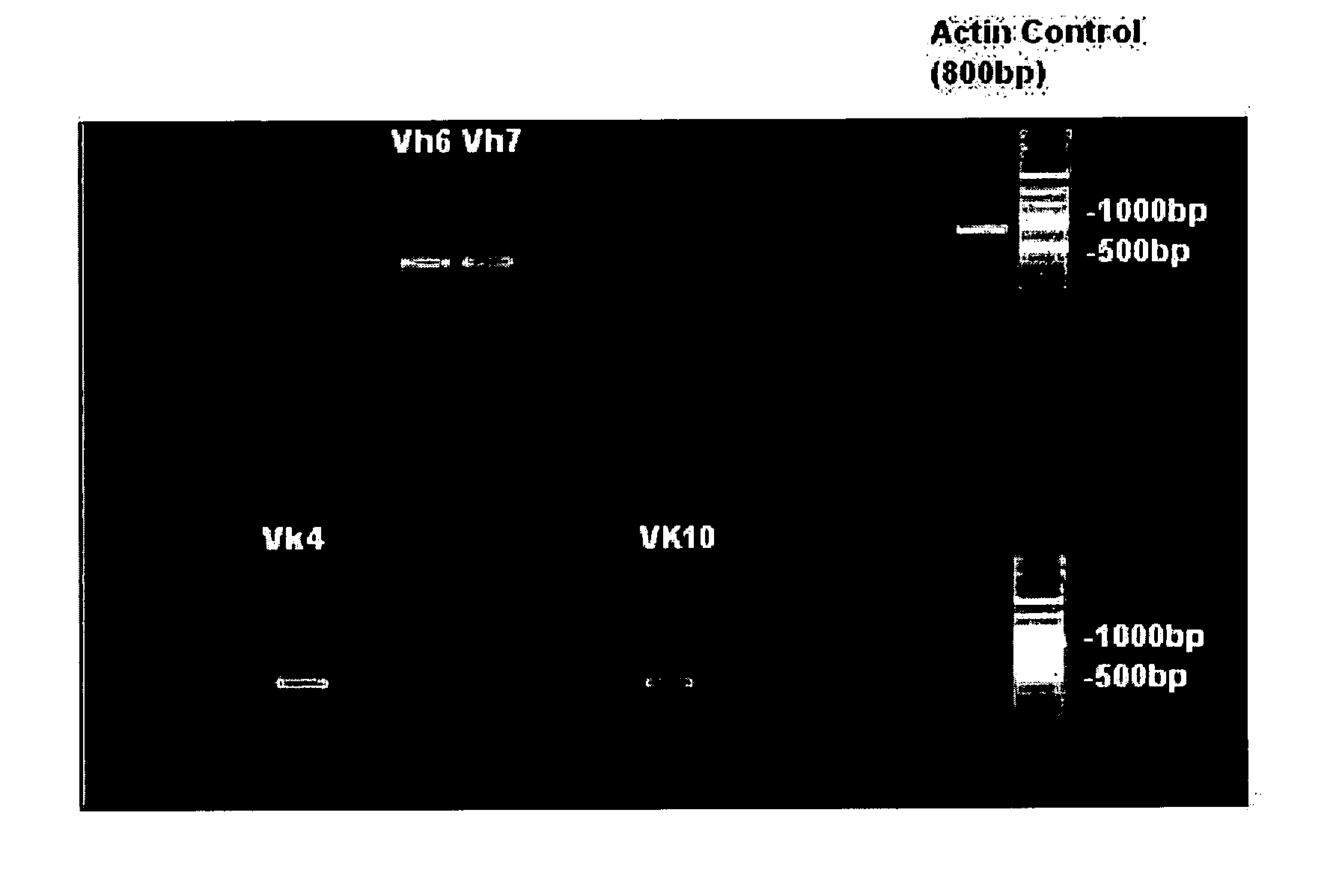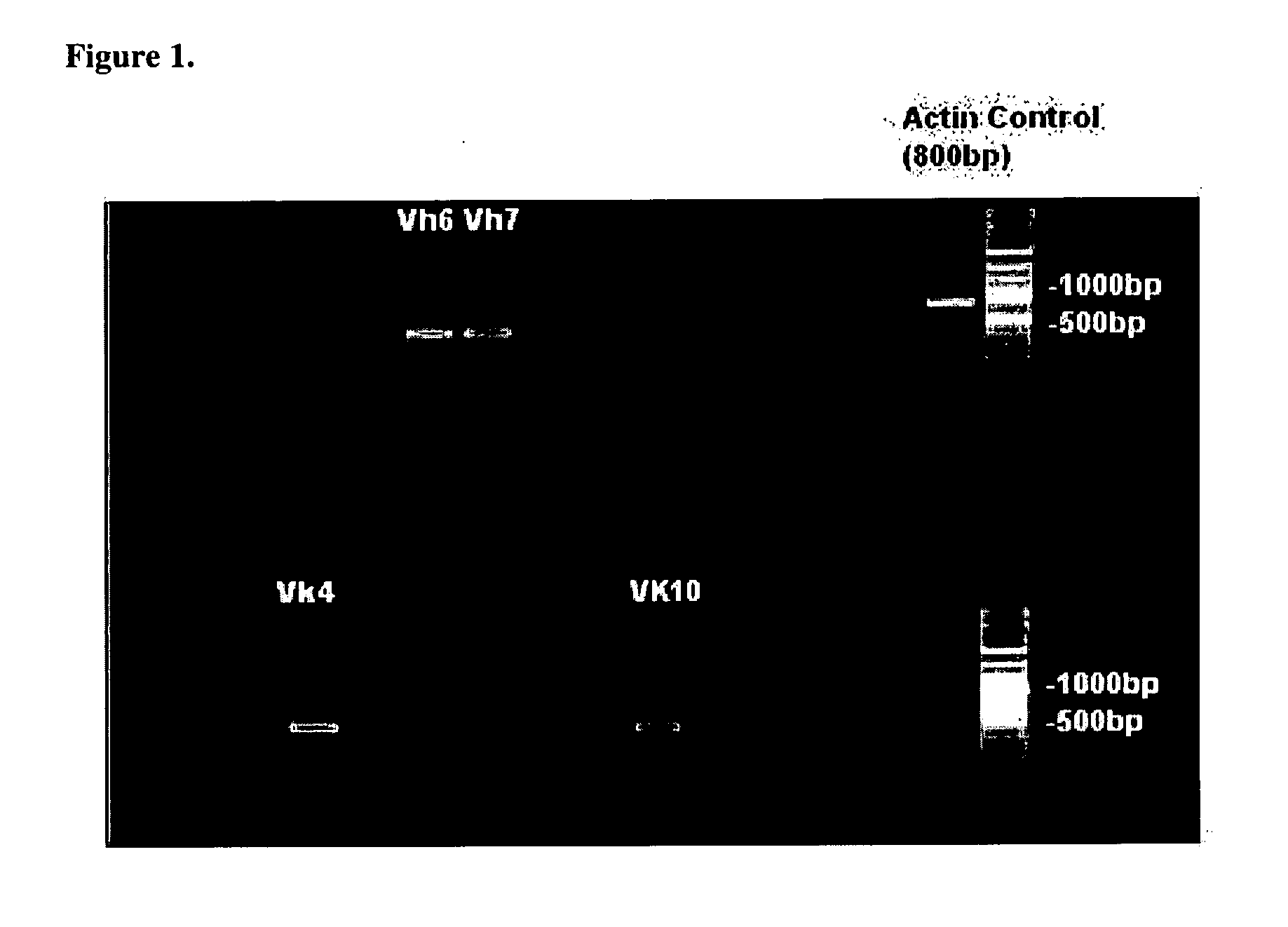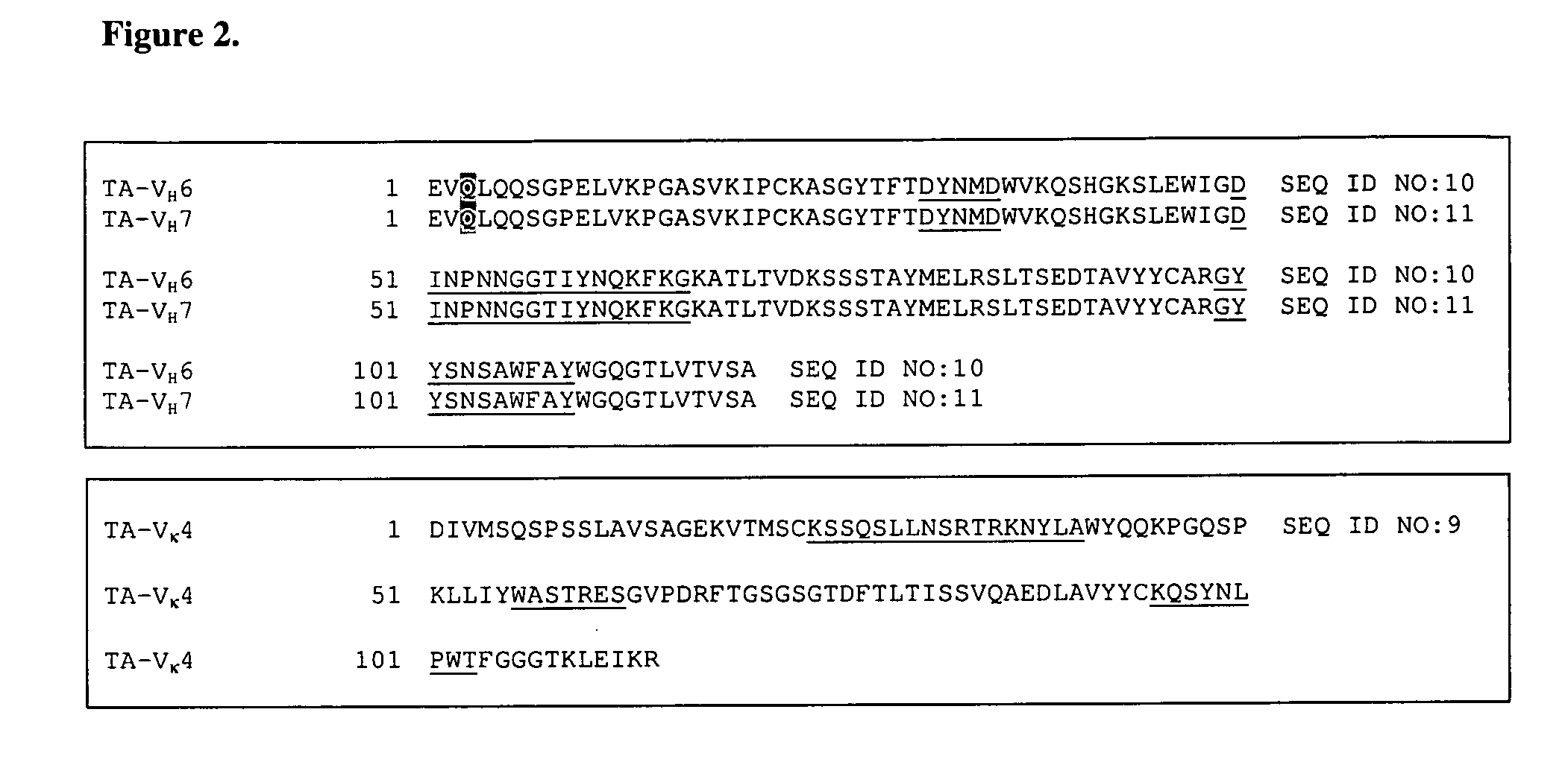Humaneered Anti-factor b antibody
a technology of humaneered anti-factors and antibodies, applied in the field of humaneered anti-factor b antibodies, can solve the problems of compromising the safety and efficacy of non-human antibodies, and achieve the effect of reducing ahr
- Summary
- Abstract
- Description
- Claims
- Application Information
AI Technical Summary
Benefits of technology
Problems solved by technology
Method used
Image
Examples
Embodiment Construction
[0028]Humaneered anti-factor B antibodies or antigen-binding fragments thereof that selectively bind to complement factor B and selectively inhibit activation of the alternative complement pathway may be used to treat any disease or disorder involving the alternative complement pathway in animals, including humans. In particular, such antibodies or antigen-binding fragments thereof may be used to treat any disease or disorder in animals, including humans, in which activation of the alternative complement pathway plays a role. Such diseases or disorders include, for example, allergic asthma and the accompanying airway inflammation and airway hyperresponsiveness (“AHR”), chronic obstructive pulmonary disease (“COPD”), allergic bronchopulmonary aspergillosis, hypersensitivity pneumonia, eosinophilic pneumonia, emphysema, bronchitis, allergic bronchitis, bronchiectasis, cystic fibrosis, tuberculosis, hypersensitivity pneumonitis, occupational asthma, sarcoid, reactive airway disease syn...
PUM
| Property | Measurement | Unit |
|---|---|---|
| equilibrium dissociation constant | aaaaa | aaaaa |
| temperature | aaaaa | aaaaa |
| wavelength | aaaaa | aaaaa |
Abstract
Description
Claims
Application Information
 Login to View More
Login to View More - R&D
- Intellectual Property
- Life Sciences
- Materials
- Tech Scout
- Unparalleled Data Quality
- Higher Quality Content
- 60% Fewer Hallucinations
Browse by: Latest US Patents, China's latest patents, Technical Efficacy Thesaurus, Application Domain, Technology Topic, Popular Technical Reports.
© 2025 PatSnap. All rights reserved.Legal|Privacy policy|Modern Slavery Act Transparency Statement|Sitemap|About US| Contact US: help@patsnap.com



